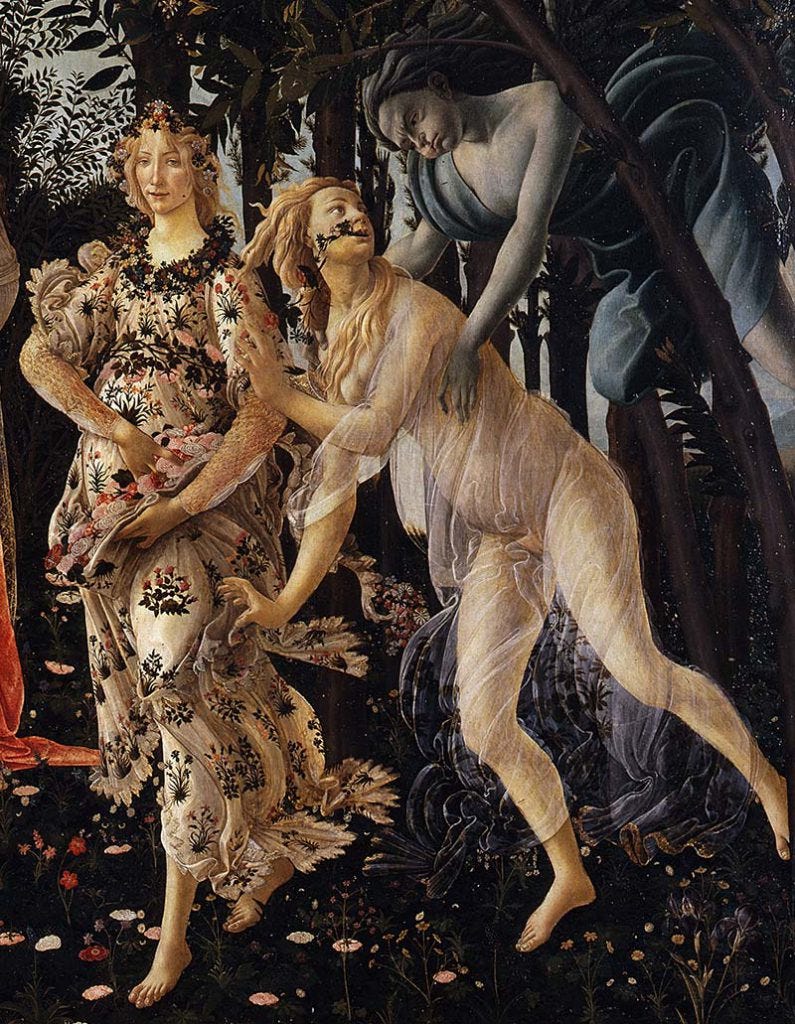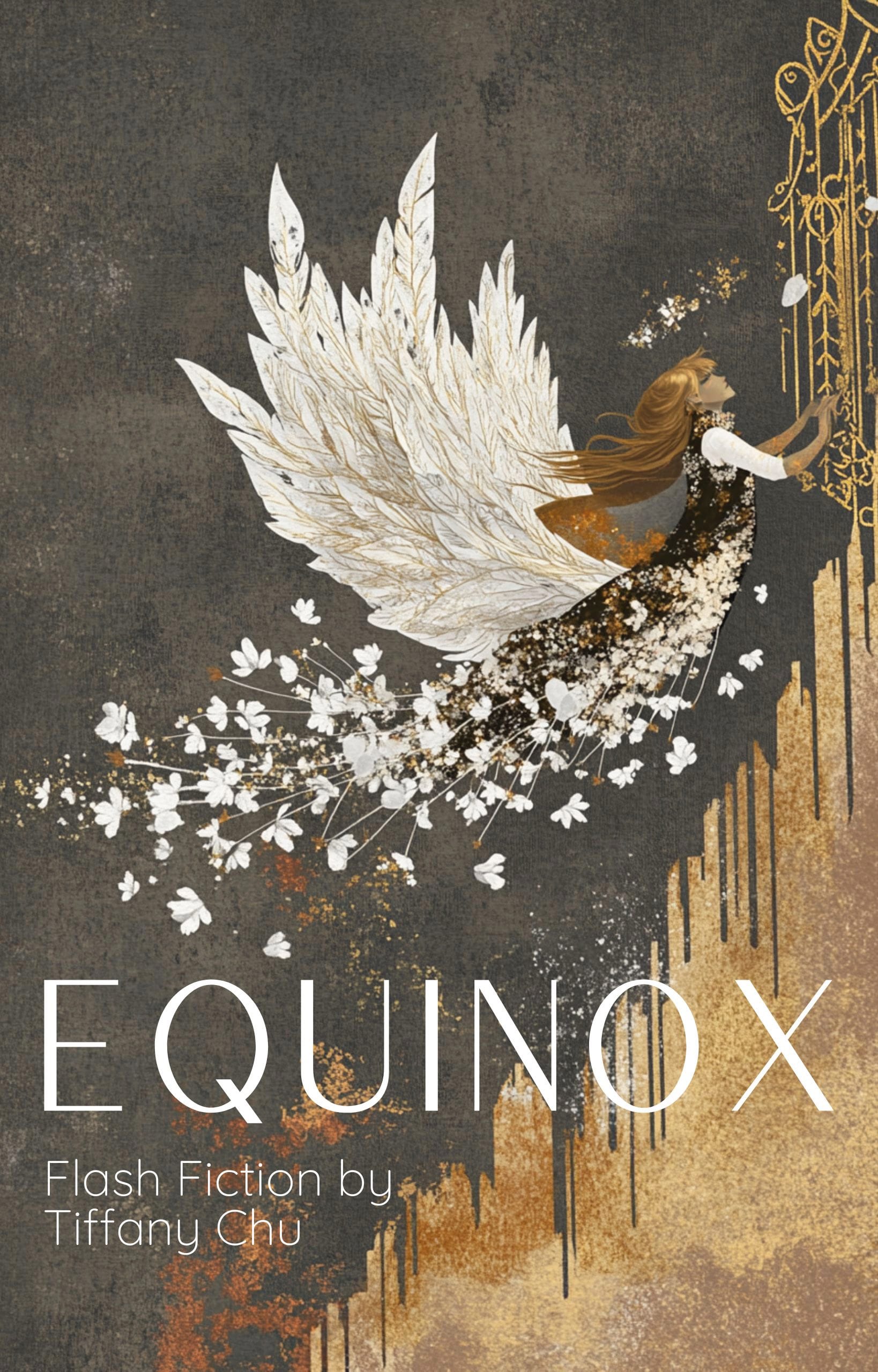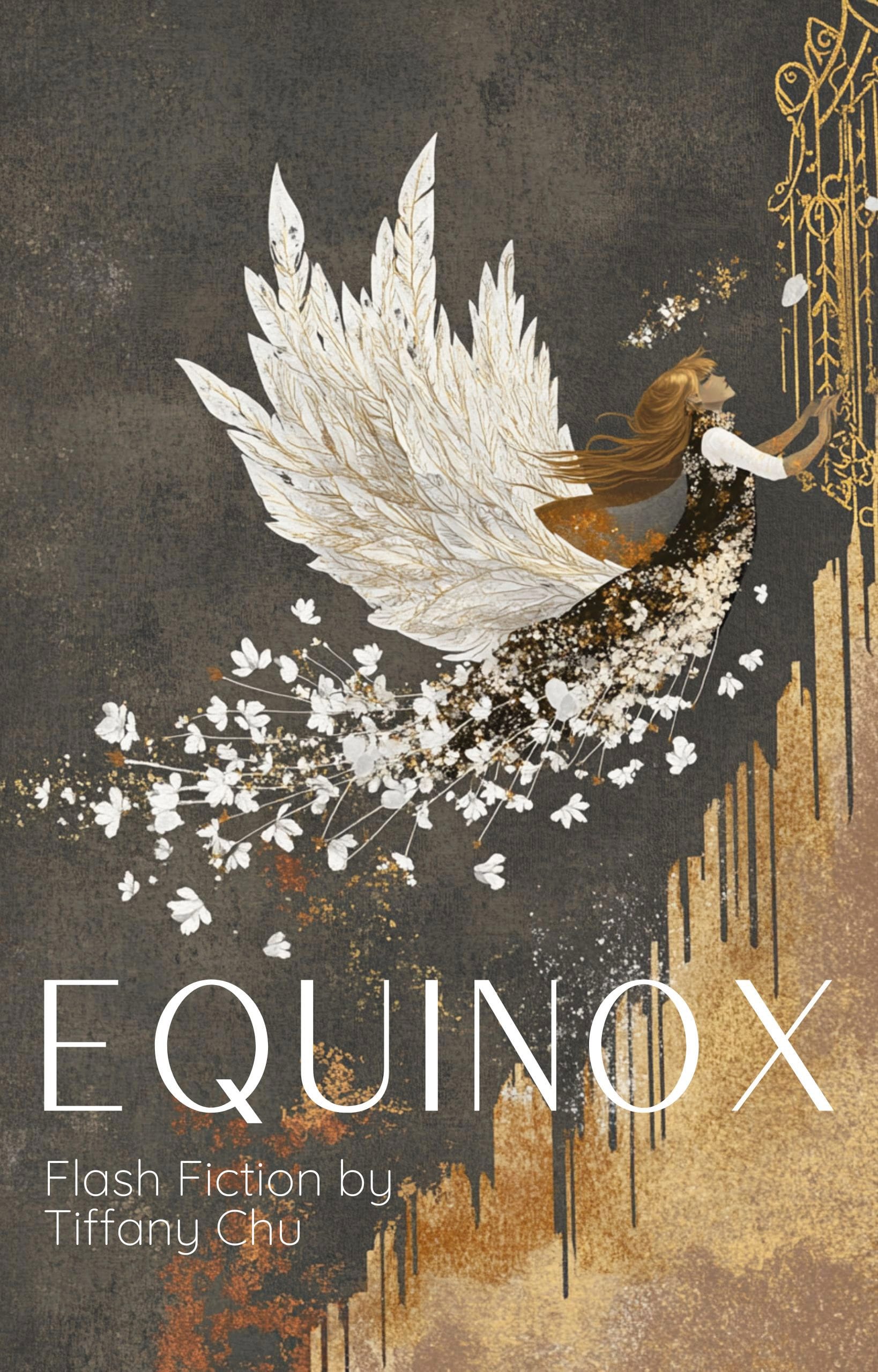(Patrons, scroll down for your free download 🩵)
In Greek myth, Chloris was a nymph transformed into Flora, goddess of spring. But myths hide darker truths. When the wind god Zephyrus claims her as his bride, Chloris loses more than her mortality—she loses herself. Now eternal, she weaves her rebellion in roses and thorns, painting the seasons with the beauty of resistance and the price of immortality.
The Story Behind the Story
I wrote Equinox for a flash fiction contest on Instagram back in 2020, which won second place. The prompt was on any Renaissance painting. I may or may not have giggled with glee as I chose Sandro Botticelli’s Primavera.
I focused on the two figures on the far right: the abduction of Chloris by the wind god, Zephyrus:

The original version of this flash fiction piece was written only from the perspective Zephyrus. It was a challenge to myself to write from the perspective of a male who saw a woman as something he desired and wanted to possess—not a fully conscious being in her own right.
At the time, I’d been working through some old trauma related to sexual assault. Still not something I’m ready to share.
In this story, Zephyrus sees the nymph, Chloris. Believing himself in love, he transforms her into a goddess of spring and flowers, and renames her Flora. Chloris loses her freedom, her life, even her own name.
Meanwhile, Zephyrus thinks he has given her the highest honour. He places his notions of what is valuable onto her, disregarding her agency. To him, she couldn’t possibly want anything other than what he has to give. He does not care about her consent.
As Chloris passes the ages as an immortal, she changes the seasons. Through them, she grieves the transitions she will never experience herself: the beauty in the ephemeral.
The story ends rather hopelessly with the final repetition of Zephyrus’s words, and the finality of “She is Flora.”
I saw her. I loved her. I took her.
She is mine.
Without conscious thought, I think I wrote the lasting effects of trauma into the story. Even if survivors are more fortunate than Chloris as to escape, such scars are threaded into our bones and skin, etched into our memories.
Even so, Chloris, as Flora, brings life from death through her creation of the rose. I added her perspective during this revision, as I felt it was important. That she made a flower that is as renown for its beauty as its defense mechanism, seemed to me a fitting metaphor—a tiny revenge. It made me think, Chloris would not suffer another being to be degraded because of its beauty, as she was. In her small ways, she is still acting upon her own will, even within imprisonment.

Subscribe to continue reading
